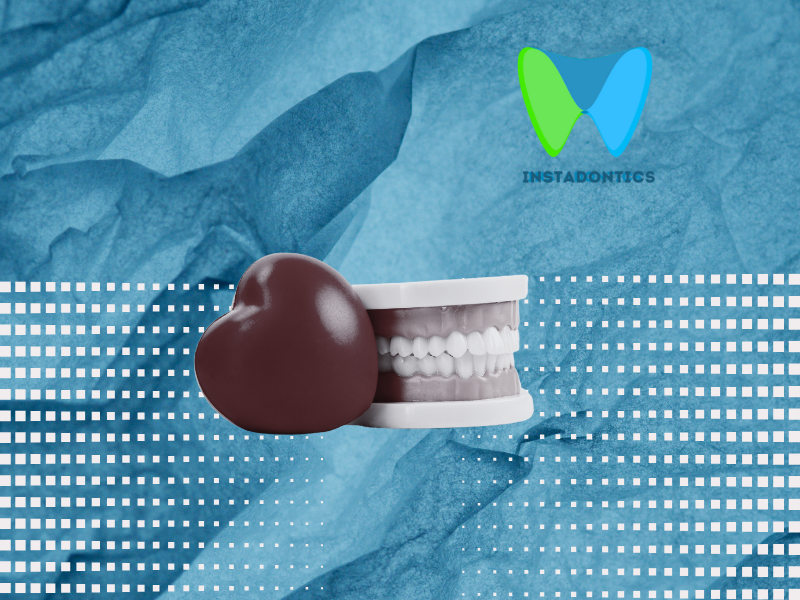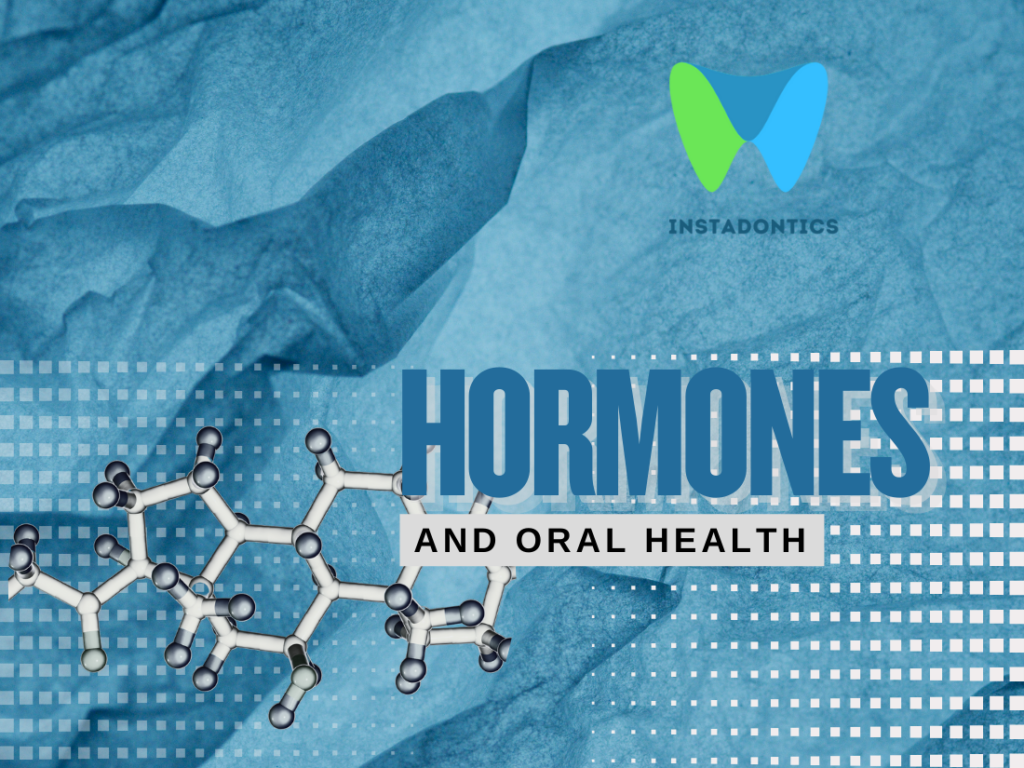Systemic Lupus Erythematosus (SLE), commonly known as lupus, is a chronic autoimmune disease that can affect multiple organs and systems in the body. One of the lesser-known but significant impacts of SLE is on oral health. Understanding how lupus affects the mouth and surrounding structures is crucial for both patients and healthcare providers. This blog post aims to shed light on the connection between SLE and oral health, providing comprehensive information on symptoms, causes, risk factors, treatment options, and preventive measures.
What is Systemic Lupus Erythematosus (SLE)?
Systemic Lupus Erythematosus (SLE) is an autoimmune disease where the immune system mistakenly attacks healthy tissues, causing widespread inflammation and damage. It can affect various body parts, including the skin, joints, kidneys, heart, lungs, brain, and blood cells. SLE is more common in women than men and often develops between the ages of 15 and 45.
Symptoms of SLE
The symptoms of SLE can vary widely from person to person and may come and go, with periods of remission and flare-ups. Common symptoms include:
- Fatigue: Persistent tiredness that doesn’t improve with rest.
- Joint Pain and Swelling: Particularly in the hands, wrists, and knees.
- Skin Rashes: Including the characteristic “butterfly” rash across the cheeks and nose.
- Fever: Low-grade fevers without any apparent cause.
- Photosensitivity: Sensitivity to sunlight, leading to rashes or increased symptoms.
- Hair Loss: Thinning hair or bald patches.
- Mouth and Nose Ulcers: Painful sores inside the mouth or nose.
- Chest Pain: Pain when taking deep breaths, often due to inflammation of the lining of the lungs (pleuritis).
How SLE Affects Oral Health
Systemic Lupus Erythematosus (SLE) is a chronic autoimmune disease that can affect nearly every organ and tissue in the body, including the mouth. Because SLE causes the immune system to attack healthy tissues, it can lead to a wide range of symptoms and complications. Oral health is often significantly impacted in individuals with SLE, both due to the disease itself and as a result of its treatments. Understanding the link between Systemic Lupus Erythematosus and Oral Health is crucial for patients and healthcare providers alike, as early recognition and management can improve quality of life and prevent serious complications.
1. Oral Ulcers
One of the hallmark oral symptoms of SLE is the development of painful ulcers or sores inside the mouth and, less commonly, in the nasal passages. These ulcers, also referred to as mucosal lesions, are among the diagnostic criteria for lupus and are reported in up to 40-50% of patients at some point during their disease course.
- Characteristics: Lupus-related oral ulcers are usually shallow, round or oval in shape, and can appear on the palate, cheeks, gums, tongue, or lips. They may be red, white, or yellowish in color and are often surrounded by a red halo. Unlike ulcers caused by trauma or other conditions, lupus ulcers are typically painless, although some patients do experience discomfort, especially when eating spicy or acidic foods.
- Triggers: These ulcers may flare up during periods of increased lupus activity (flares) and can be triggered by stress, trauma from dental appliances, or even minor injuries from brushing or eating.
- Impact: The presence of oral ulcers can make eating, drinking, and speaking difficult and uncomfortable. In severe cases, they may contribute to poor nutrition or weight loss if the patient avoids food to minimize pain.
2. Dry Mouth (Xerostomia)
Dry mouth, or xerostomia, is another common oral complication associated with SLE. This can be caused by the disease itself, which may affect the salivary glands, or as a side effect of medications used to treat lupus, such as certain immunosuppressants, antihypertensives, and antidepressants.
- Consequences: Saliva is essential for maintaining oral health. It helps wash away food particles, neutralizes acids, and contains antimicrobial proteins that protect against bacteria and fungi. When saliva production is reduced, the mouth becomes dry, leading to a host of problems:
- Increased risk of tooth decay, as bacteria are less effectively washed away.
- Higher likelihood of gum disease, since the protective effects of saliva are diminished.
- Difficulty swallowing and speaking.
- Increased risk of oral infections, including fungal infections like oral thrush.
- Management: Patients with SLE and dry mouth are advised to sip water frequently, use sugar-free gum or lozenges to stimulate saliva, and avoid caffeine and alcohol, which can worsen dryness. In some cases, prescription saliva substitutes or medications to stimulate saliva production may be recommended.
3. Gum Disease (Periodontitis)
Chronic inflammation is a hallmark of SLE, and this can extend to the gums and supporting structures of the teeth. Gum disease, or periodontitis, is significantly more prevalent and severe in people with SLE compared to the general population.
- How SLE Exacerbates Gum Disease:
- The immune system dysfunction in SLE can lead to an exaggerated inflammatory response in the gums, resulting in swelling, redness, and bleeding.
- Reduced saliva flow, common in SLE, further increases the risk of gum disease by allowing plaque and bacteria to accumulate.
- Medications such as corticosteroids may mask the symptoms of gum disease, delaying diagnosis and treatment.
- Consequences: If left untreated, gum disease can progress to destroy the tissues and bone that support the teeth, eventually leading to tooth mobility and loss. Additionally, chronic gum inflammation may contribute to systemic inflammation, potentially worsening lupus symptoms.
- Prevention and Treatment: Good oral hygiene, including regular brushing, flossing, and dental checkups, is essential. Dentists may recommend more frequent cleanings and specialized treatments for those with SLE.
4. Increased Risk of Infections
SLE is commonly treated with immunosuppressive medications, including corticosteroids, antimalarials, and drugs like azathioprine or mycophenolate mofetil. While these medications are critical for controlling lupus activity, they also suppress the body’s ability to fight infections, including those in the mouth, which play a role in the manifestations of Systemic Lupus Erythematosus and Oral Health.
- Types of Oral Infections:
- Fungal Infections: Oral candidiasis (thrush) is especially common, presenting as white patches on the tongue, cheeks, or palate. These can be painful and may cause a burning sensation.
- Viral Infections: Herpes simplex virus (HSV) can cause cold sores or herpetic lesions inside the mouth, which may be more severe or recurrent in immunosuppressed patients.
- Bacterial Infections: Increased susceptibility to bacterial infections can lead to abscesses, periodontal infections, or more severe complications like cellulitis.
- Prevention: Maintaining excellent oral hygiene, avoiding tobacco, and seeking prompt treatment for any signs of infection are essential. Dentists may prescribe antifungal or antiviral medications as needed.
5. Temporomandibular Joint (TMJ) Disorders
The temporomandibular joint (TMJ) connects the jawbone to the skull and is responsible for movements required for chewing, speaking, and yawning. SLE can cause inflammation in any of the body’s joints, including the TMJ.
- Symptoms:
- Pain or tenderness in the jaw joint.
- Difficulty or pain when opening or closing the mouth.
- Clicking, popping, or grating sounds when moving the jaw.
- Locking of the jaw in an open or closed position.
- Impact: TMJ disorders can make eating and speaking challenging and may contribute to headaches or ear pain. In severe cases, chronic inflammation can lead to joint damage and changes in the alignment of the teeth.
- Management: Treatment may include anti-inflammatory medications, physical therapy, bite splints, or, in rare cases, surgical intervention. Stress management and gentle jaw exercises can also help alleviate symptoms.
Additional Considerations
- Medication Side Effects: Beyond immunosuppression, many medications used in SLE can cause oral side effects, such as mouth sores, gum overgrowth, or changes in taste.
- Delayed Healing: SLE and its treatments can slow the healing of oral tissues, making recovery from dental procedures or injuries more prolonged.
- Regular Dental Care: Patients with SLE should inform their dentist about their diagnosis and medications. Regular dental visits, professional cleanings, and preventive care are critical to managing oral health.
Oral health is a vital but often overlooked aspect of managing Systemic Lupus Erythematosus. From painful ulcers and dry mouth to increased risk of infections and gum disease, SLE can profoundly affect the mouth and overall quality of life. Awareness, preventive
Causes and Risk Factors
Causes of SLE
The exact cause of SLE is not fully understood, but it is believed to result from a combination of genetic, environmental, and hormonal factors:
- Genetics: A family history of lupus or other autoimmune diseases increases the risk.
- Environmental Triggers: Infections, certain medications, and exposure to ultraviolet light can trigger SLE in genetically predisposed individuals.
- Hormonal Factors: Hormonal changes, particularly in women, may influence the development of SLE.
Risk Factors for Oral Health Issues in SLE
- Medications: Immunosuppressive and anti-inflammatory medications used to treat SLE can have side effects that impact oral health, such as dry mouth and increased susceptibility to infections.
- Chronic Inflammation: The systemic inflammation associated with SLE can exacerbate existing oral health issues and increase the risk of developing new problems.
- Poor Oral Hygiene: Difficulty maintaining oral hygiene due to pain or fatigue can contribute to the development of dental and gum diseases.
Treatment & Prevention
Managing SLE
Effective management of SLE involves a combination of medications, lifestyle changes, and regular medical monitoring:
Medical Treatments
- Anti-inflammatory Drugs: Nonsteroidal anti-inflammatory drugs (NSAIDs) can help reduce joint pain and inflammation.
- Corticosteroids: These powerful anti-inflammatory medications can control severe symptoms but must be used under close medical supervision due to potential side effects.
- Immunosuppressants: Medications that suppress the immune system can help control the overactive immune response in SLE.
- Antimalarial Drugs: Medications like hydroxychloroquine are commonly used to manage skin and joint symptoms of SLE.
Lifestyle Changes
- Healthy Diet: A balanced diet rich in fruits, vegetables, lean proteins, and whole grains can help manage symptoms and improve overall health.
- Regular Exercise: Physical activity can help reduce fatigue, improve mood, and maintain joint function.
- Stress Management: Techniques such as yoga, meditation, and deep-breathing exercises can help manage stress, which can trigger flare-ups.
Protecting Oral Health
To protect your oral health from the effects of SLE, consider the following tips:
Oral Hygiene Practices
- Brush and Floss Regularly: Maintain good oral hygiene by brushing twice a day with fluoride toothpaste and flossing daily.
- Use Mouth Rinses: Antimicrobial mouth rinses can help reduce the risk of gum disease and oral infections.
- Stay Hydrated: Drink plenty of water to help combat dry mouth.
Dental Treatments
- Saliva Substitutes: Over-the-counter products can help alleviate dry mouth.
- Chewing Gum: Sugar-free gum can stimulate saliva production and help keep your mouth moist.
- Regular Dental Check-Ups: Visit your dentist regularly for check-ups and professional cleanings. Inform your dentist about your SLE diagnosis.
Addressing Specific Oral Health Issues
- Oral Ulcers: Topical treatments and medications can help manage painful sores and ulcers in the mouth.
- Gum Disease: Good oral hygiene, regular dental visits, and treatments such as deep cleaning (scaling and root planing) can help manage gum disease.
- TMJ Disorders: Physical therapy, medications, and in some cases, surgical interventions may be necessary to manage TMJ disorders.
FAQs & Myths
FAQ 1: Can SLE cause tooth loss?
While SLE itself does not directly cause tooth loss, the associated conditions such as dry mouth, gum disease, and increased risk of infections can lead to tooth loss if not properly managed.
FAQ 2: How often should I visit the dentist if I have SLE?
Individuals with SLE should visit their dentist at least twice a year for regular check-ups and cleanings. More frequent visits may be necessary if there are signs of significant oral health issues.
FAQ 3: Can children have SLE and related oral health issues?
Yes, children can develop SLE, and these conditions can affect their oral health. It is important toconsult a pediatrician and dentist for proper diagnosis and treatment. Early intervention can help manage symptoms and prevent complications.
Myths
Myth 1: Only older adults get SLE.
SLE can affect individuals of all ages, including children and young adults. While it is more common in women of childbearing age, it can develop at any stage of life.
Myth 2: Oral health issues related to SLE are unavoidable.
While SLE can increase the risk of oral health issues, proper management, good oral hygiene practices, and regular dental visits can significantly reduce the risk and severity of these problems.
Myth 3: If you don’t have visible symptoms, your oral health isn’t affected by SLE.
SLE can cause oral health issues even when other symptoms are not apparent. Regular dental check-ups are essential to detect and manage these issues early.
Key Takeaways
Understanding the connection between Systemic Lupus Erythematosus (SLE) and oral health is essential for maintaining overall well-being. Here are the key takeaways:
- Systemic Lupus Erythematosus (SLE): A chronic autoimmune disease that can affect multiple organs and systems, including the oral cavity.
- Oral Health Impact: SLE can lead to oral ulcers, dry mouth, gum disease, increased risk of infections, and TMJ disorders.
- Oral Ulcers: One of the most common oral manifestations of SLE is the development of painful ulcers or sores inside the mouth and nose. These ulcers can make eating and speaking difficult.
- Dry Mouth (Xerostomia): SLE and some of its treatments can reduce saliva production, leading to dry mouth. This condition increases the risk of tooth decay, gum disease, and oral infections.
- Gum Disease (Periodontitis): Chronic inflammation associated with SLE can exacerbate gum disease, leading to swollen, bleeding gums and, if untreated, tooth loss.
- Increased Risk of Infections: The immunosuppressive medications used to manage SLE can increase the risk of oral infections, including fungal infections like oral thrush.
- Temporomandibular Joint (TMJ) Disorders: SLE can cause inflammation in the joints, including the jaw joint, leading to pain and difficulty in jaw movement.
- Causes and Risk Factors: Include genetics, environmental triggers, hormonal factors, and medications used to treat SLE.
- Management: Effective management involves a combination of medications, lifestyle changes, and regular medical monitoring.
- Oral Health Protection: Maintain good oral hygiene, use mouth rinses and saliva substitutes, stay hydrated, and visit the dentist regularly.
By taking a proactive approach to managing SLE and protecting your oral health, you can significantly improve your overall health and quality of life. For further reading and personalized advice, consult with healthcare professionals, including your primary care physician, rheumatologist, and dentist. Regular check-ups and open communication with your healthcare team are essential to effectively manage SLE and prevent oral health complications.
If you have been diagnosed with SLE or are experiencing any related oral health issues, don’t wait—seek professional help today. Early diagnosis and treatment can make a significant difference in your overall health and well-being. Schedule an appointment with your healthcare provider to discuss your symptoms and explore the best treatment options for you. Additionally, make sure to maintain regular dental visits and inform your dentist about your SLE diagnosis to ensure comprehensive care. By staying informed and proactive, you can effectively manage SLE and maintain a healthy, vibrant smile.



